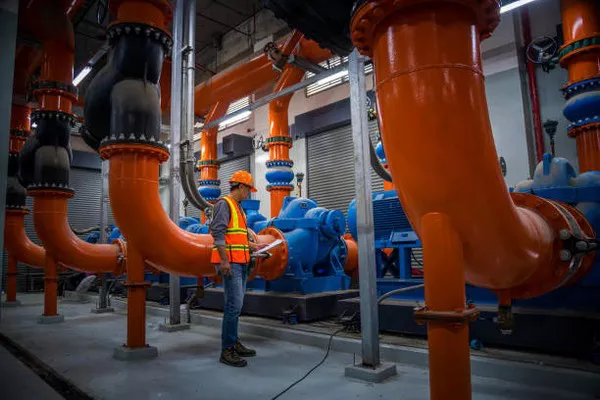An air conditioner compressor plays a pivotal role in the functionality of your cooling system, as it is responsible for circulating refrigerant and facilitating the heat exchange process. As a crucial component, homeowners and HVAC professionals often wonder about the expected lifespan of an air conditioner compressor. While there is no one-size-fits-all answer, understanding the factors that influence compressor longevity and implementing proper maintenance practices can significantly extend its operational lifespan.
The Average Lifespan
The average lifespan of an air conditioner compressor typically ranges from 10 to 15 years. However, several factors can impact this estimate, including the quality of the unit, frequency of use, environmental conditions, and adherence to regular maintenance schedules.
Quality of the Unit
The quality of the air conditioner unit itself plays a pivotal role in determining the compressor’s lifespan. Higher-quality systems often come equipped with durable components, including compressors designed to withstand the rigors of regular operation. Investing in a reputable brand and model with positive reviews can contribute to a longer lifespan for your air conditioner compressor.
Frequency of Use
The frequency with which an air conditioner is used directly affects the compressor’s lifespan. In regions with extreme temperatures, where air conditioners operate for extended periods, compressors may experience more wear and tear. Conversely, in climates with milder temperatures, compressors may not be subjected to as much stress, potentially extending their operational life.
Environmental Conditions
Environmental factors such as climate, air quality, and exposure to the elements can significantly impact the lifespan of an air conditioner compressor. For example, units located in coastal areas may be more susceptible to corrosion due to salt exposure, potentially reducing the compressor’s lifespan. Proper installation and protection against environmental elements can mitigate these risks.
Regular Maintenance
Proactive and regular maintenance is paramount to ensuring the longevity of an air conditioner compressor. Neglecting routine tasks, such as cleaning or replacing air filters, can lead to reduced efficiency and increased strain on the compressor. Regular inspections by HVAC professionals, cleaning of coils, and lubrication of moving parts are essential maintenance practices that can extend the compressor’s life.
Signs of Compressor Issues
Being vigilant for signs of compressor issues can help homeowners address problems early on, potentially preventing more significant damage and costly repairs. Common signs of compressor problems include reduced cooling efficiency, unusual noises (such as grinding or clanking), and erratic cycling. If any of these symptoms are observed, it is advisable to consult with a professional HVAC technician promptly.
Overheating and Thermal Stress
Overheating is a common issue that can impact the lifespan of an air conditioner compressor. This can result from factors such as inadequate refrigerant levels, poor airflow, or electrical issues. Thermal stress, caused by rapid temperature changes, can also contribute to compressor wear. Regular maintenance, proper insulation, and ensuring optimal refrigerant levels are essential in preventing overheating and thermal stress.
See Also: How Much Does It Cost To Replace An Ac Compressor?
Refrigerant Levels
Maintaining the correct refrigerant levels is crucial for the efficient operation and longevity of the air conditioner compressor. Low refrigerant levels can lead to increased strain on the compressor, potentially causing it to overheat and fail prematurely. Regular checks and prompt resolution of any refrigerant leaks or issues are vital in preserving the compressor’s health.
Conclusion
In conclusion, the lifespan of an air conditioner compressor is influenced by various factors, making it challenging to provide a definitive answer to the question of how long it should last. Homeowners can take proactive steps to maximize the lifespan of their compressors by investing in high-quality units, adhering to regular maintenance schedules, and addressing issues promptly. By understanding the factors that impact compressor longevity and implementing best practices, homeowners can enjoy reliable and efficient cooling for many years. Regular professional inspections, coupled with homeowner diligence, can contribute to a comfortable indoor environment and cost-effective cooling solutions.

